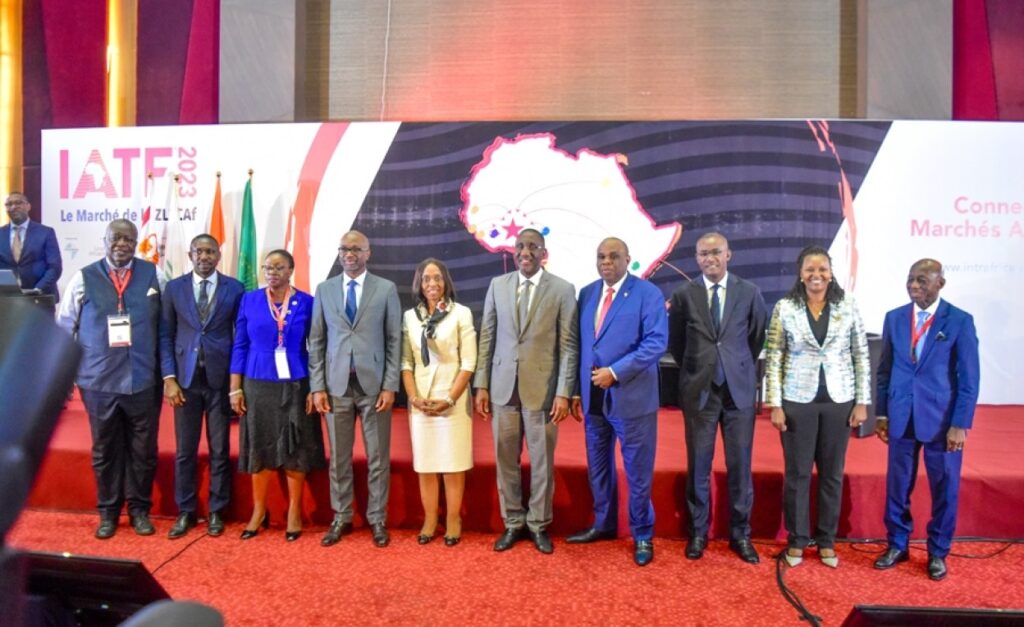Read in
Between the 1960s and 1990s, a slogan resonated in the spirit of Ivory Coast’s inhabitants: ‘this country will succeed through agriculture’. More than 60 years after independence, Côte d’Ivoire, which is set to welcome the 3rd edition of the Intra-African Trade Fair (IATF2023), continues to derive the bulk of its wealth from agricultural production.
During IATF 2023, which will take place between the 21st and 27th of November 2023, in the new Parc d’Exposition d’Abidjan, more than 35,000 expected participants will have the chance to discover Côte d’Ivoire’s agricultural potential.
The second largest economy in the West African region after Nigeria, Côte d’Ivoire accounts for 60% of the agricultural exports in the West African Economic and Monetary Union (UEMOA) and 33% in ECOWAS. This makes it one of the most attractive countries for agricultural investors from Africa to invest in.
The world’s largest producer of cocoa and cashew nut, 4th producer of cotton in Africa, 7th producer of natural rubber in the world (1st producer in Africa), 5th produce of palm oil in the world (2nd in Africa) – around 75% of Côte d’Ivoire’s landmass is arable and fertile land, of which around 42% is cultivated.
However, most of Côte d’Ivoire’s agricultural produce is exported abroad despite the fact that there are nearby African countries which import the very same goods. For example, Kenya, Nigeria, Angola and South Africa are all big importers of palm oil, but most of it comes from Indonesia and Malaysia.
Côte d’Ivoire therefore offers a huge range of investment opportunities for African businesses. For the time being, it must be recognized that most of the country’s rich and diversified agricultural sector only benefits European countries.
In 2020, Belgium, Vietnam, Switzerland, the US and the Netherlands all imported more goods from Côte d’Ivoire than Mali, which is the largest importer of Ivorian commodities in Africa. Burkina Faso were the second and third largest African importers of Ivorian produce, but in minimal quantities, which suggests that there is a huge potential to increase Ivorian exports to the West African subregion and beyond.
In fact, in 2020, 61.7% of Côte d’Ivoire’ exports were agricultural products while 44.8% of total exports were destined for Europe followed by 22.8% in Africa (55% to the UEMOA region).
The IATF shows the dedication of African countries to reverse this trend and intensify intra-African commerce. During the Abidjan roadshow in February, which announced the upcoming IATF, Emily Mburu-Ndoria, Director of commercial services, investment, intellectual property rights and commerce at the Secretariat of the AfCFTA, said that important action had been taken by the Secretariat to galvanize all African countries to solidify the free trade zone.
“The agreement protocols have been created to facilitate commerce between African countries. In particular, we have created one agency charged with boosting investment. The AfCFTA Secretariat uses specialized instruments which were created to encourage African countries to boost trade between each other and IATF 2023 will be an important opportunity to achieve exactly that”.
With more than $43 billion expected in business deals and the participation of governments, the private sector, buyers, sellers and multilateral banks, the IATF is Africa’s flagship event to boost intra-African trade on the continent.



